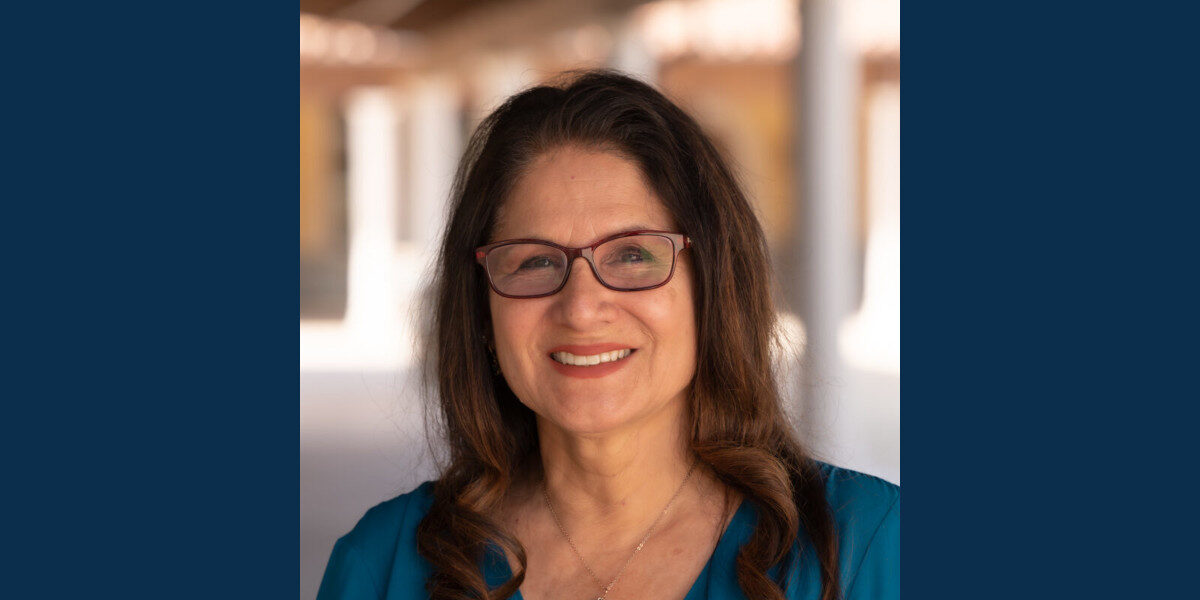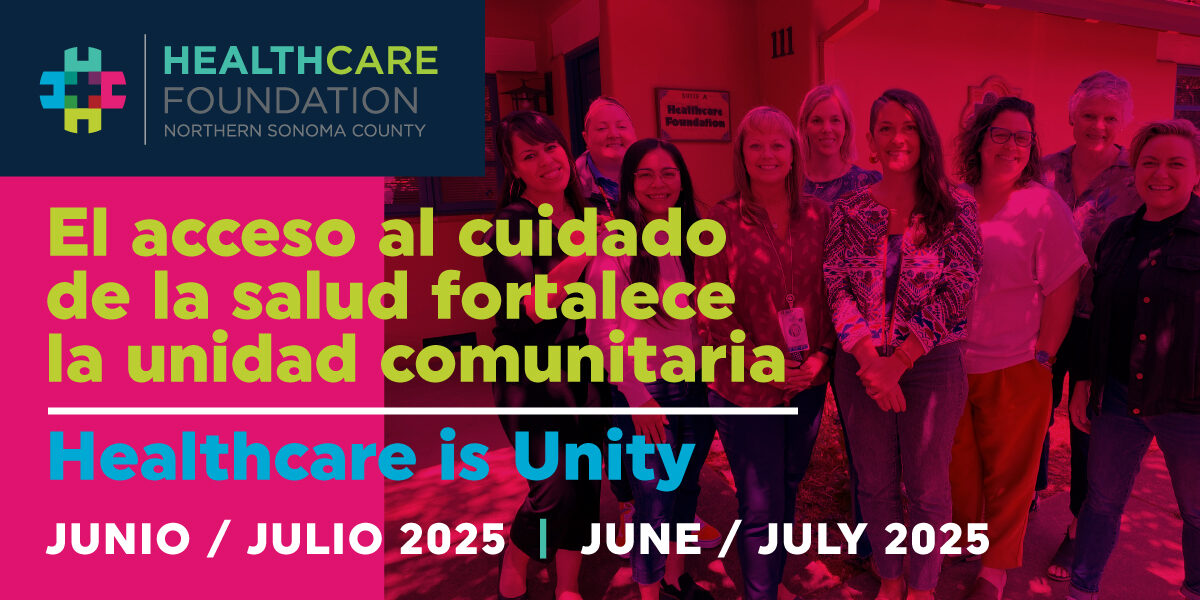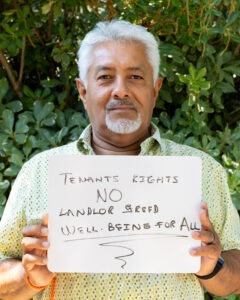

The Year Ahead
4.5 min read. A talk with incoming Healthcare Foundation Board Chair Wanda Tapia-Thomsen.
Wanda Tapia-Thomsen is a native of Sonoma County with a long career of service to low-income and underrepresented communities across northern California. She joined the Healthcare Foundation Board of Directors in 2021, bringing with her a wealth of professional and lived experience. By then she had retired as Assistant County Director at the University of California Cooperative Extension (UCCE), where over 29 years she served in the Family Nutrition & Consumer Sciences, Horticultural and 4-H Departments. Wanda also served, until 2018, as Executive Director/CEO of Latino Service Providers (LSP), which she co-founded in 1989 to address the unmet needs of Latino residents in Sonoma County.
In these roles and many others—including her work with the Latino Health Forum, Asian Health Forum, Beginning Farmer & Rancher Program, 5-a-Day Power Play Campaign, and the Childhood Obesity Coalition—Wanda has been an instrumental figure in the advance of health equity, social justice, and wellbeing in our region.
As she steps into the role of Board Chair this month, we spoke with Wanda Tapia-Thomsen about some of what she’s learned in her career and the key Healthcare Foundation initiatives and community priorities she is focused on in the year ahead.
Can you tell us how your career at UCCE developed?
I started out as a nutrition educator with youth in elementary schools. I worked with the teachers to incorporate a nutrition education curriculum that aligned with the core standards of the educational system. I was very happy doing that, working with teachers and, later, working with adults in low-income areas, transition homes, and homeless shelters. UCCE provided many opportunities for advancement and bilateral movement and learning, so I later worked in the horticulture department, which led me to the world of agriculture. I worked on a backyard home composting project, for instance, which in part led to the creation of a zero-waste event in Sonoma County. This was very timely in the ’90s to raise awareness of environmental stewardship. Later I joined the 4-H Youth Development team, which connected me with youth programming, 4-H camps, ChickenQue and the 4-H community family.
Along the way, I conducted a lot of outreach and gathering of information and worked closely with government offices. All of which gave me a broader view of the community and greater depth of knowledge. I felt lucky to work with so many different walks of people, agencies and government.
It gave me invaluable skills, and taught me how to gain the trust of the community and the importance of being empathetic—I had to understand the lived experience of those I served. Having grown up in low-income neighborhoods myself, such as Roseland and South Park, I understood the challenges and barriers of the community I was reaching.
How did founding Latino Service Providers come about?
I’d been enmeshed in and been a part of the community on many levels, with a focus on social justice and health equity. As a young working mom with children in elementary school, I strived to use the resources and connections I had to help with their success. However, I started the Latino Service Providers out of a lack, and a sense of frustration. We were living in Roseland, in the toughest part of Santa Rosa, with a big gang element, drugs and alcohol, and there were no resources for my children, unless they already had ‘a problem’. Even though I worked at the University and had so many connections, I still couldn’t help my own kids. Like-minded people gathered to meet, talk and share knowledge, resources and ideas. Which eventually grew into a million dollar nonprofit, which serves those in the community from cradle to rocking chair.
It started small, but eventually agencies began hosting monthly meetings with a 30+ attendance. We were a bridge for organizations with resources and programs and the people that needed them. One of the barriers people had in reaching out for resources was lack of trust and some fear in the system. LSP bridged that gap; it was not a ‘give to get’, it was a “Let us help you”—it was and is an organization to be trusted. It was an easy jump from “you trust us” to “you can trust this other organization we’re introducing you to.”
We connected people with resources and with organizations that wanted to support those same communities, so it was a win-win. We always had high participation because it built resilience and strengthened the community.
“Moving into 2024 and my role as Chair, I find the Healthcare Foundation with a strong strategic plan in place. The initiatives we are working on now put us in a strong position to continue effectively advancing health equity in our part of the world.”
Wanda Tapia-Thomsen, Board Chair
What made you want to join the Board of the Healthcare Foundation?
LSP was operating in the north county area in Windsor, so I always knew about the Healthcare Foundation, which had supported us. Later, it was Esther [Lemus] who asked me to serve on its nominating committee. What really enticed me was the people. Having been in the nonprofit field for 29 years, I had been on at least 25 nonprofit boards and found the HCF Board a delight. When I was working on the nominating committee for the Healthcare Foundation, I realized what a strong executive director and staff they had, together with a unified board of directors that didn’t carry a personal agenda. I joined the Board because they were intentionally looking for people of color and lived experience, and I could see the impact they were making in the community.
The mission is straightforward, eliminating health inequities, and I am looking at the past, current and future initiatives to continue that mission. What that looks like today is our Mental Health Talent Pipeline, helping people of color with education tuition in the Mental Health field, and the convenings for a Community Wellness Center in Cloverdale, Healdsburg, and Windsor. Also, we just received a new grant to form a community-based group that will coordinate a grassroots effort to identify issues affecting seniors in north county.
The new initiative you mention concerning seniors in north county dovetails with a statewide initiative, California’s Master Plan for Aging, which you are already involved with, isn’t that right?
Yes, I’m on that steering committee! I’m right in the midst of it in life, too. I’m 68, my mom is 96, and she’s in a home. She has been living independently for close to 15 years, which put me in touch with the many barriers and challenges confronting seniors. And I’m also elderly! I still have a lot of energy, I can still do things, but I’m heading that way. I have my own lived experience, and my mom’s experience. I see where the gaps are—the lack of IHSS [In-Home Supportive Services] workers, economic insecurity, the isolation, help with daily needs, and so on. I know what it feels like to be a senior Latina, but also to be in that sandwich generation where you have grandchildren on this side and an elderly parent on that side.
When they asked me to be on the steering committee for Sonoma County’s Local Master Plan for Aging, which links to the State’s Master Plan for Aging, I thought it was a perfect opportunity to help put solutions into motion. It turned out, the Healthcare Foundation was right on my heels!*
What are your hopes for 2024 as Chair of the Board?
Moving into 2024 and my role as Chair, I find the Healthcare Foundation with a strong strategic plan in place. We have a dynamic and excellent E.D. and highly skilled staff and my focus is to continue, solidify and strengthen the priorities already set in motion via our strategic plan conducted late last year. The initiatives we are working on now, like the Wellness Centers, the Community Health Workers Initiative, the Mental Health Talent Pipeline, supporting dialogue and initiatives around Farmworker Health and around the county’s Guaranteed Basic Income pilot—put us in a strong position to continue effectively advancing health equity in our part of the world.
Together with the Board and Staff, I will be ensuring that there’s no gap in the support the community is receiving now. It’s going to be an eventful year.
*A grant secured by the Healthcare Foundation in late 2023 provides the opportunity for the Healthcare Foundation and its community partners to contribute to the state’s Master Plan for Aging by collaborating with and learning from Cloverdale residents themselves about the challenges facing seniors and the solutions they see. More information on this major new initiative will appear in next month’s newsletter.

Related News + Stories
Invest in Our Community
Your support is vital to our collective vision of eliminating health inequities in northern Sonoma County.
Donate



